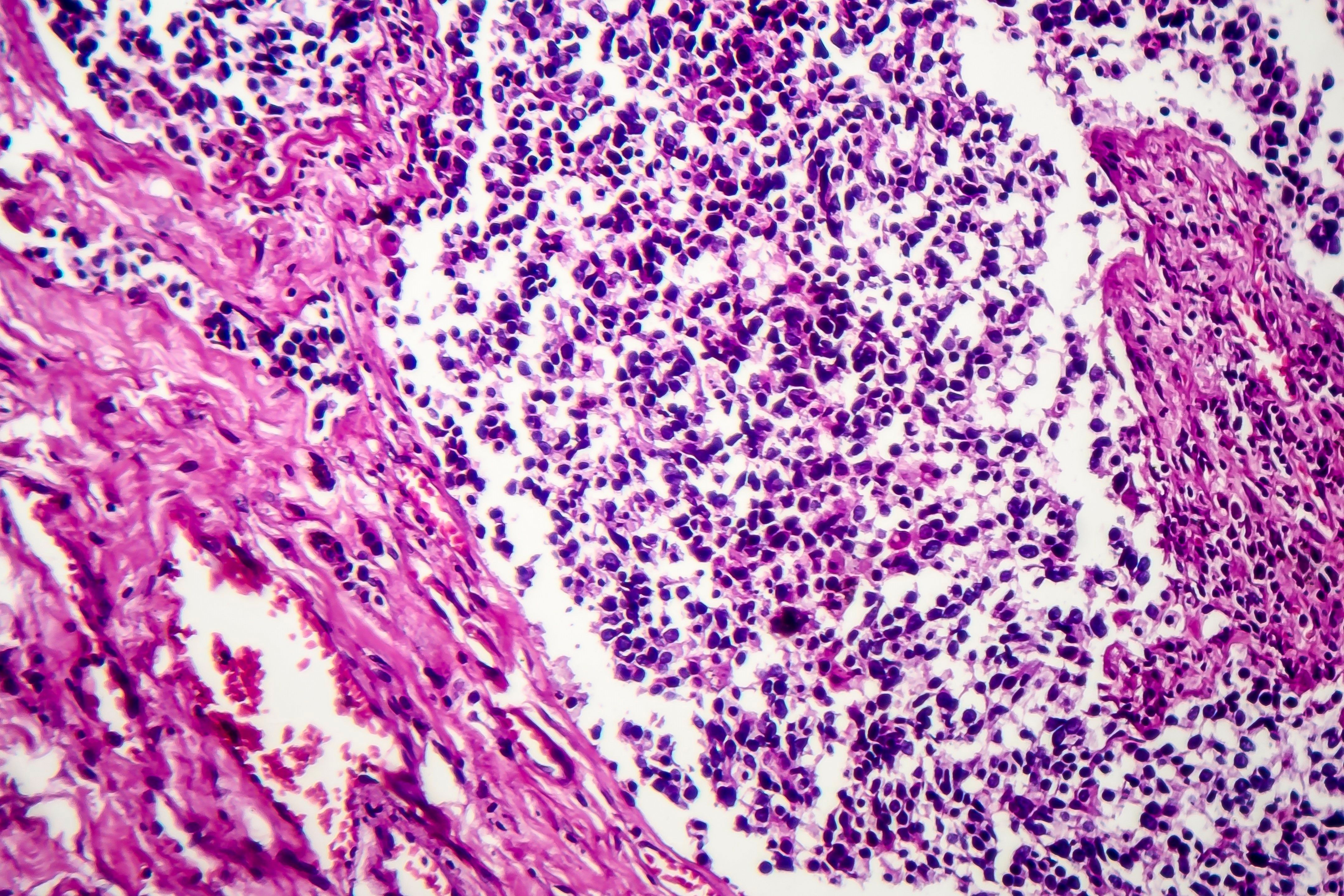FDA Grants Orphan Drug Designation to Alisertib in SCLC
A phase 2 study, PUMA-ALI-4201, will further investigate alisertib for the treatment of small cell lung cancer.
- The FDA grants orphan drug designations (ODD) to agents that can diagnose or prevent a rare disease or condition affecting fewer than 200,000 people in the United States.1
- With an ODD, alisertib (MLN8237) may receive assistance in the drug development process, tax credits for qualified trials, waiver of certain FDA fees, and the potential for 7 years of post-approval marketing exclusivity.
- The FDA also recently cleared an investigation new drug application of alisertib for the treatment of patients with extensive-stage small cell lung cancer (SCLC).

The FDA has granted ODD to alisertib for the treatment of patients with SCLC.1
Alisertib is a selective, small-molecule, orally administered aurora kinase A inhibitor for which the safety and activity was outlined in a prior phase 2 study (NCT01045421) of patients with SCLC, breast cancer, non–small cell lung cancer, head and neck squamous cell carcinoma, gastroesophageal adenocarcinoma. The primary end point of the phase 2 study was objective response rate (ORR), and the secondary end points were duration of response (DOR), time to progression (TTP), progression-free survival (PFS), and safety determined by the number of patients with adverse events (AEs). The study included 249 patients, of which 60 patients were a part of the SCLC cohort.
In the study, alisertib demonstrated clinical activity that exceeded the prespecified criterion for further research and showed a manageable safety profile.
The ORR observed in the SCLC cohort was 21% (95% CI, 10%-35%). The best response was stable disease (SD) for 33% (95% CI, 20%-48%) of patients, and SD for ≥ 6 months for 4%. Forty-six percent (95% CI, 31%-61%) of patients with SCLC had progressive disease. The median DOR in the SCLC cohort was 4.1 months (95% CI, 3.1 months to not evaluable).2
Patients with SCLC had a median PFS of 2.1 months (95% CI, 1.4-3.4 months). The median TTP observed was 2.6 months (95% CI, 1.4-3.8 months).
SCLC under the microscope | Image Credit: © Dr_Microbe - www.stock.adobe.com

In the overall study population, the most common drug-related AEs were neutropenia (51%), fatigue (50%), and anemia 31%. Fifty-eight percent of patients experienced grade 3/4 drug-related AEs, of which the most common was neutropenia in 43% of patients. Further, treatment-emergent all-cause serious AEs occurred in 43% of patients, and drug-related serious AEs occurred in 18%.
These findings provided rationale for continued study of aurora kinase A inhibition in SCLC, as well as the other 4 tumor types. The PUMA-ALI-4201 study was developed to continue the research around this treatment in SCLC.
“Obtaining orphan drug designation from the FDA signifies our continued progress and commitment to the development of alisertib for the treatment of small cell lung cancer,” said Alan H. Auerbach, chief executive officer, president and founder of Puma Biotechnology, Inc, in a press release.1 “There is an urgent need for new treatments for patients with small cell lung cancer, and we look forward to the initiation of our phase 2 trial [Study PUMA-ALI-4201] of alisertib in small cell lung cancer.”
REFERENCES:
1. Puma Biotechnology receives FDA orphan drug designation for alisertib for the treatment of small cell lung cancer. News release. Puma Biotechnology, Inc. September 21, 2023. Accessed September 25, 2023. https://tinyurl.com/5y8jtnfu
2. Melichar B, Adenis A, Lockhart C, et al. Safety and activity of alisertib, an investigational aurora kinase A inhibitor, in patients with breast cancer, small-cell lung cancer, non-small-cell lung cancer, head and neck squamous-cell carcinoma, and gastro-oesophageal adenocarcinoma: a five-arm phase 2 study. Lancet Oncol. 2015;16(4): 395-405. doi:10.1016/S1470-2045(15)70051-3





